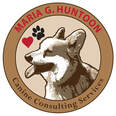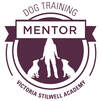A blog for all things dog-related: training, behavior, fun new doggie items, veterinary information and, of course, ways to enhance your relationship with your best four-legged friend!
The first step is in understanding what is driving your dog's nipping in particular situations. Dogs take a lot of their emotional energy out through their mouths, so whenever your pup is feeling out of balance emotionally, this is often the driving factor behind biting behavior. Now, with that said, there could be different emotions at play in different incidences... she could be trying to communicate her frustration, her confusion, that she is excited/trying to be playful, trying to solicit attention, that she is overstimulated/highly aroused, or that she is overtired and needs a break/downtime. If we can take the following steps to make sure we are communicating with the dog effectively and to keep her emotionally balanced, you should see a big decrease in the biting behavior: Make sure you are consistent and clear with your communication. Pups will often get mouthy if they are confused or frustrated by what we are trying to tell them, meaning that our communication to them is not very clear in that moment. We don't do this on purpose, it's just that dogs and humans have two different methods of communicating - so it's often that we may unintentionally give a dog mixed signals unless we can be aware of this difference. Dogs pay a lot more attention to our body language than to the words that are coming out of our mouths, so if our words are saying one thing but our body is saying another, this makes miscommunication at the basis of your dog's current behavior issue. For example, if a pup is jumping up on us and mouthing because they are excited and we say "no, off, don't do that" but start engaging with them and pushing them away - we are actually accidentally reinforcing the jumping and mouthing behavior because they are getting what they want from us = attention. Our words may be saying "no, stop" but our body is saying "we think this is a fun game" because we are interacting back with them. So rather than cool down and cease, the biting is more likely to escalate.
Try to make this a teachable moment and redirect the pup. Again, mouthing is a very natural behavior for pups so they are not doing this behavior to try to make us mad - if they knew a different way of communicating with us, I'm sure they would! Sometimes it is not a young pup displaying this behavior, but an older dog. If the older dog was a rescue who did not have trusting relationships with humans or boundaries/leadership during his developmental stages, the size and physical age of the dog doesn't matter - emotionally, the dog may still be immature and may not have learned how to handle his emotional arousal. Either way, it is our responsibility to teach the dog what TO do in these situations so he can bring out his best self. With that said, I would not recommend using a spray bottle, shock collar, grabbing the dog's snout or any other kind of aversive method to curb the behavior. For many pups that can actually increase their frustration and stress/arousal level because now they fear a punishment but they still don't know what else to do. If instead, we can calmly redirect this behavior and teach a new way of handling their arousal, we won't run the risk that a sensitive pup may learn to fear/be defensive or aggressive towards humans. If you can catch the pup before she becomes too highly aroused, it can be a good idea to try substituting a toy - either by engaging her with a rope toy or ball, or by giving her a toy she can enjoy on her own (like a chew or food-stuffed toy) to redirect all that emotional energy (it still has to come out, we just want it to come out on the right objects rather than on your skin). If one type of toy doesn't work, try another (pups will have different "play moods" just like children will). But if the pup is too highly aroused and at the point where she is not in a good state of mind to learn or make good decisions, a substitution may not be effective. In that moment, your pup may not be receptive to redirection. In that situation, the best thing we can do is help the pup bring her arousal level down. Act with conviction and stay calm. Because dogs pay a lot of attention to our body language, if we start reacting to the pup out of frustration or fear we give off a lot of our own frenetic energy. Physics tells us that frenetic energy feeds off of other frenetic energy and that becomes a cluster of chaos - NOT a good mix if we are trying to help a pup calm down. So while it can be tough to do, resist the urge to raise your voice or intimidate the dog, as again this will often increase arousal even further.
So make sure to breathe, act calmly and confidently like you know what you are doing and sticking to it (conviction), and clearly redirect the pup's energy in a more productive way. Here's an article on how to have that conviction and respectable leadership roles. Give your pup short segments of activity followed by downtime. Young pups or dogs with a naturally high arousal have short attention spans, and so they can also only handle a short amount of intense activity (play, social outings, training, etc) at a time before they become overtired and then start throwing a tantrum like a child (only, for a pup, instead of crying and stomping around this comes in the form of biting). So depending on the age of the pup and the intensity of the activity/stimulation level going on around them, your pup may need shorter segments of activity followed by longer periods of "forced downtime" to decompress. I call it "forced downtime" because even if they don't want to do it right away, it is mentally and emotionally necessary for them. Therefore, it is the pup parent's job to facilitate this opportunity and make it happen. It's akin to a parent putting an overtired child down for a nap - of course, the child does not want to take a nap so he will often cry and fight it initially, but if the parent facilitates the naptime then the child will eventually settle in and nap because his body and brain need to recharge. When the child wakes up, he is better balanced again - the same is true with pups.
Give your dog adequate and proper physical and mental stimulation in slices she can handle and as appropriate for her age. Pups need physical exercise, as well as mental stimulation where they get to process new information, problem solve and use their brains, in order to work out a lot of their emotional energy in a more productive way (rather than just mouthing at everything if they are feeling bored, frustrated, etc). Meeting their needs for both physical and mental outlets will keep a pup more emotionally balanced - and a balanced pup is a well-behaved pup!
If a pup/child is just running amok in a high state of arousal where he is not thinking clearly and just gets to practice being "out of his mind", it does not do for his body and brain what he needs the exercise to do. The result is a pup/child whose body may crash or "short circuit" momentarily but is then right back up doing it all over again a short while later because he is not properly satiated. However, playing a game where a pup/child has to think, process, make decisions and act methodically (NOT in a high state of arousal) will make the brain (and therefore the body) tired in a satiated way and so voila - the activity has now down for the brain/body what we intended for it to do. For more information about productive versus unproductive outlets and how to balance out physical/mental/emotional energy, see my article Understanding Your Dog's Need for Balance - Mentally, Emotionally and Physically.
0 Comments
Your comment will be posted after it is approved.
Leave a Reply. |
AuthorMaria Huntoon, CBCC-KA Archives
April 2020
Categories |
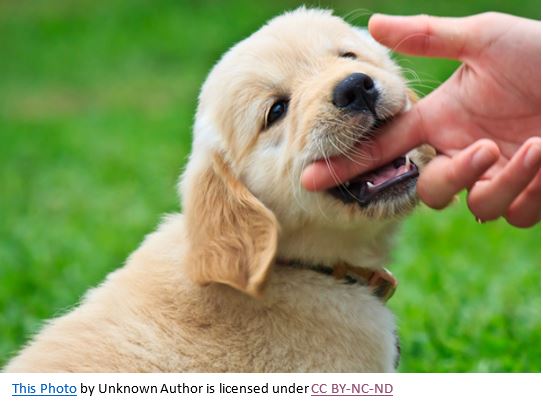
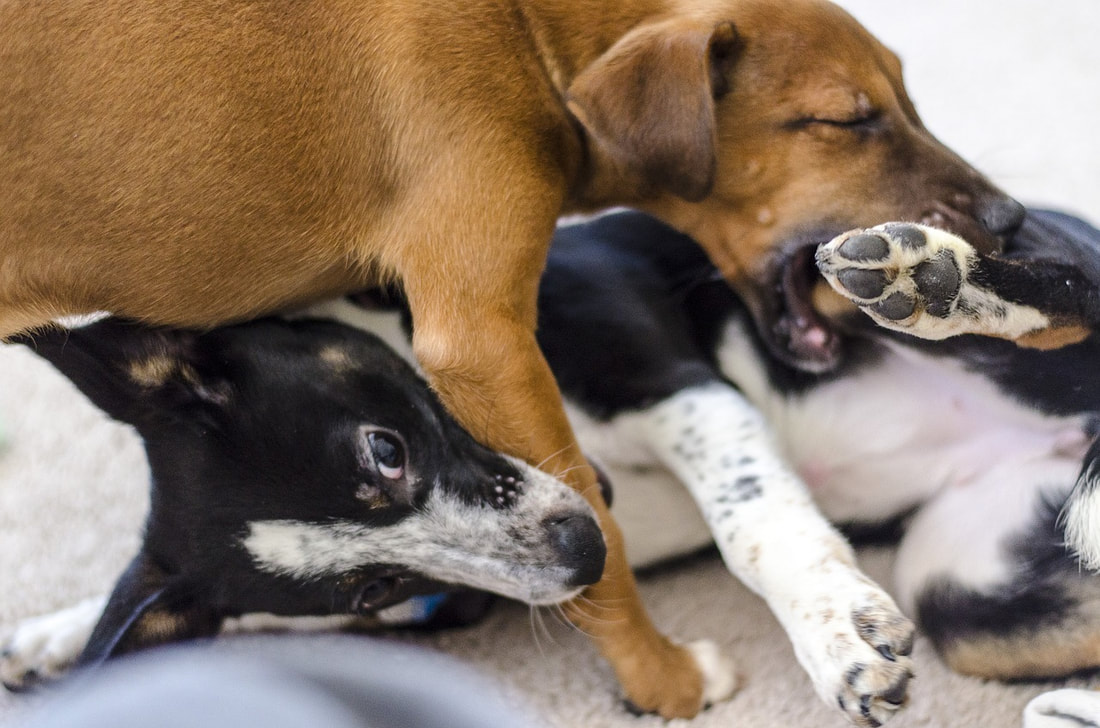
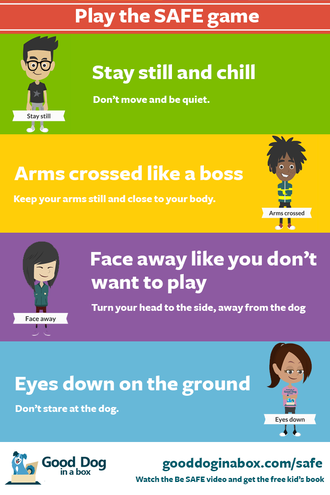
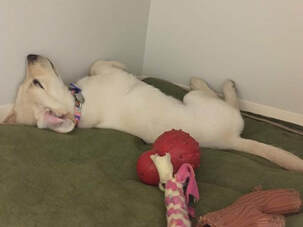
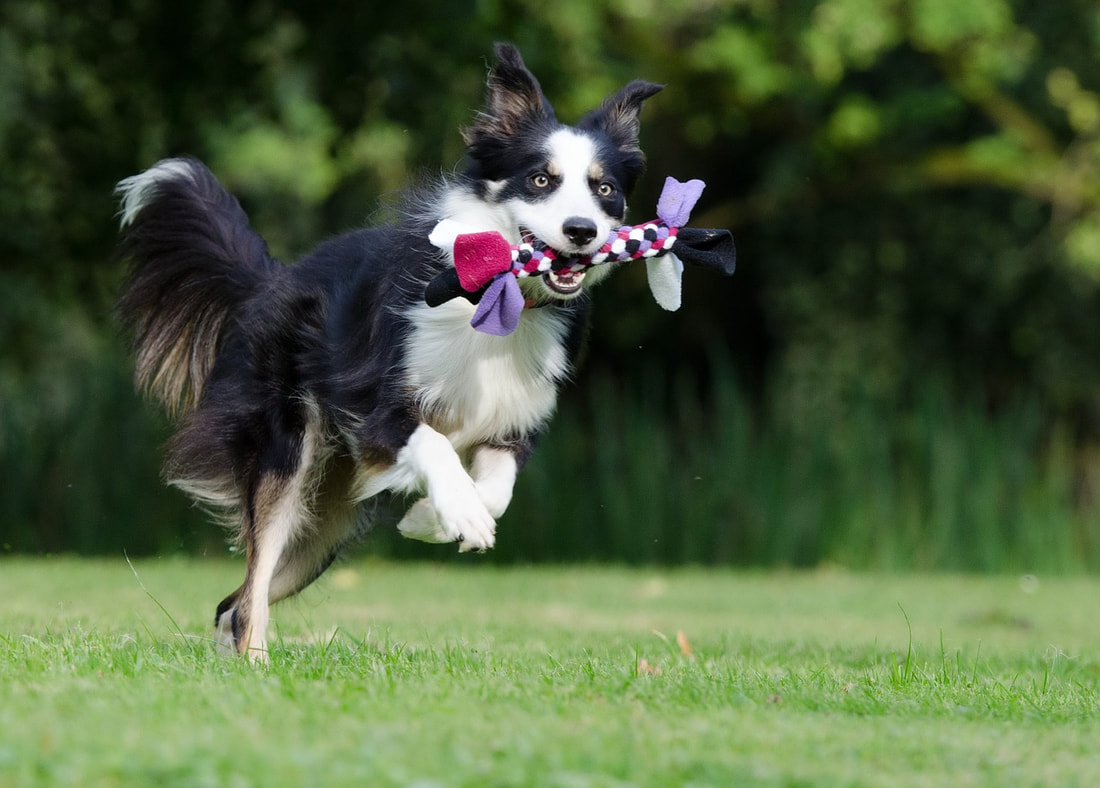
 RSS Feed
RSS Feed
